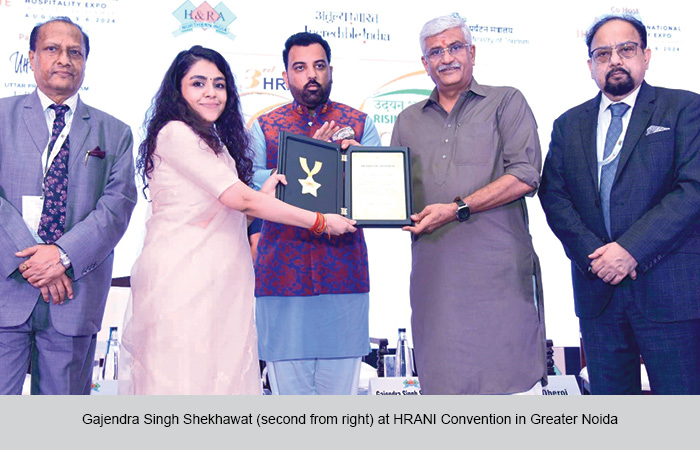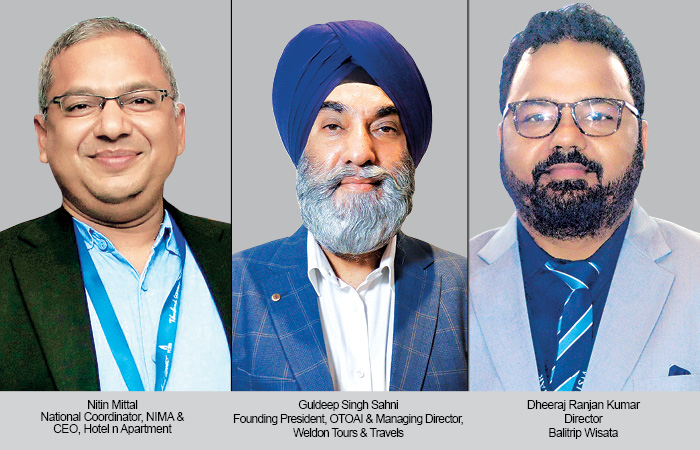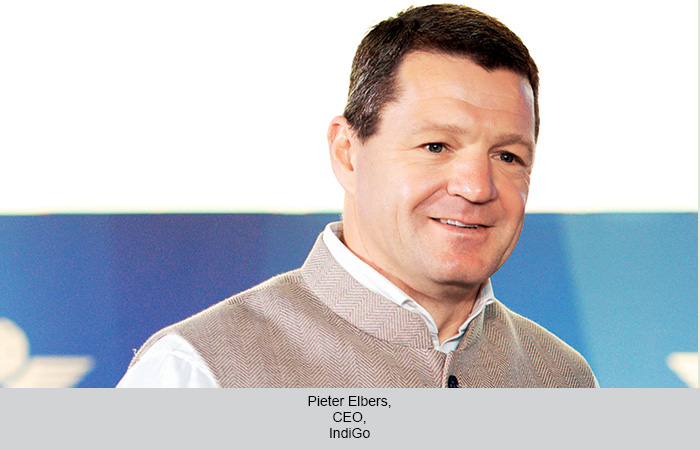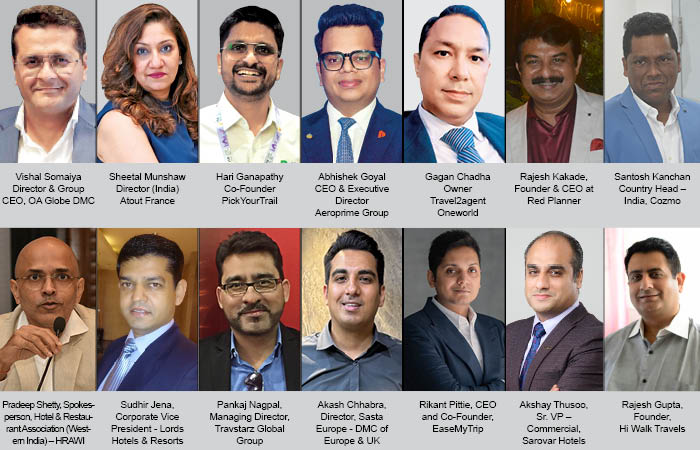Gajendra Singh Shekhawat, Union Minister of Culture and Tourism emphasises on the role of tourism industry in the growth of India and positioning the country as the world’s third-largest economy by 2027. The Union Minister was addressing the Hotel & Restaurant Association of North India (HRANI) Convention in Greater Noida recently.
TT Bureau
Gajendra Singh Shekhawat, Minister of Culture and Tourism, Government of India, addressing the Hotel & Restaurant Association of North India (HRANI) Convention in Greater Noida recently, highlighted the government’s vision to position India as the world’s third-largest economy by 2027. “We aspire to make India an advanced, prosperous, powerful, rich and world’s principal attraction by the year 2027,” he said, adding that his presence at the event signified the government’s commitment to provide a conducive environment for the tourism industry to thrive and contribute to India’s economic prosperity.
Tourism’s role in growth story
Shekhawat underlined tourism as the key driver of the government’s ambitious goal, saying that the sector’s growth is essentially linked to India’s journey towards becoming a developed nation. The minister praised the hotel and restaurant industry for its significant contribution to preserving India’s rich cultural heritage while catering to the needs of domestic and international tourists.
Government support to industry
Recognising challenges faced by the industry, Shekhawat assured support of the government in addressing them. He also emphasised on the importance of clear and continuous dialogue between industry stakeholders and policymakers for sustainable growth of the tourism sector.
Shekhawat identified himself as a part of the Hotel and Restaurant Association (HRA) family and characterised the convention as a familial gathering. “For the past seven and a half decades, the Federation of Hotel & Restaurant Associations of India (FHRAI) has been the cornerstone of India’s tourism industry, actively contributing to its expansion while confronting obstacles faced by the sector and employees involved in it,” he said. “Atithi Devo Bhava (translates to guest is equivalent to God) is the motto of the association that works to familiarise tourists with the culture, diversity and values of our country,” he added.
Shekhawat said, “India’s global image has transformed due to recent advancements in infrastructure and technology, coupled with the nation’s growing stature. This has sparked renewed interest among international tourists.”
The minister highlighted the rapid expansion of India’s middle-class segment and its potential to fuel domestic tourism. “People’s habits have shifted from solely spiritual trips to embracing travel as a means to discover, experience, and connect with India’s diversity, driving a surge in domestic tourism,” he said.
Comparing India’s tourism potential to global competitors like Thailand and Dubai, he stressed the need to capitalise on the country’s diverse offerings. He emphasised the government’s commitment to developing new tourist destinations to decongest popular spots and ease infrastructure pressures. He asserted that hoteliers will be instrumental in accomplishing this objective.
With a target of doubling the tourism sector’s growth rate, the minister’s speech injected optimism into the industry and signalled a proactive approach from the government to unlock India’s tourism potential. He pledged to address the complexities of Goods and Services Tax (GST) for the tourism industry.
 TravTalk India Online Magazine
TravTalk India Online Magazine








